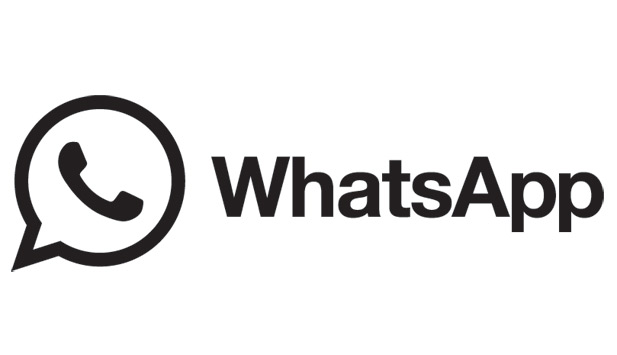 So mobile operators are reeling under dumb pipe threat the internet is permanently visiting upon them. Some have cleverly accepted this inevitability and have gone the app bundles route. The Facebook bundles and WhatsApp bundles that is. Those that haven’t will rue their inaction ofcourse. So far, the disruption of the internet to voice and SMS revenues the mobile operators are making are illustrated most by the popularity of WhatsApp, Facebook messenger, and the promise of voice apps like Viber, Skype and so on.
So mobile operators are reeling under dumb pipe threat the internet is permanently visiting upon them. Some have cleverly accepted this inevitability and have gone the app bundles route. The Facebook bundles and WhatsApp bundles that is. Those that haven’t will rue their inaction ofcourse. So far, the disruption of the internet to voice and SMS revenues the mobile operators are making are illustrated most by the popularity of WhatsApp, Facebook messenger, and the promise of voice apps like Viber, Skype and so on.
The voice apps however have mostly been inefficient and generally unpolished, delivering only good internet, if end to end, subscribers are on stable 3G connections, or WiFi. An announcement made today by WhatsApp co-founder, Jan Koum, at the Mobile World Congress, may change this state of affairs. WhatsApp is going for voice calls too.
Now if there’s a company that can optimise an app to use as minimal data as possible while delivering quality service, it is WhatsApp. But this even more as we’re talking WhatsApp engineering prowess combined with that at Facebook!
“We’re going to introduce voice on WhatsApp in the second quarter of this year,” said Koum today. He explains the product: “We think we have the best voice product out there. We use the least amount of bandwidth and optimize the hell out of it.”
We’re guessing WhatsApp bundles by operators will likely go away a bit (they usually come as 3 month promos at a time) at least just to regroup and remodel. Or maybe the price of the bundles will increase significantly to cater for the lost voice revenue.
It’s the most vicious blow to be delivered by WhatsApp to the telcos so far. SMS, even when it ruled, was never the biggest revenue earner. Voice is. And the way things are going, voice too as a regulator licensed privilege of a few companies, will fall away. Dumb internet pipes is what they will become in the future, and only those that are preparing for this eventuality (with things like mobile payment platforms), will survive it!

9 comments
I use WhatsApp & love the service but this statement seems unsubstantiated:
As far as I know, WhatsApp uses an XMPP derivative with no compression. I think any impression of efficient data utilisation is because plain text uses minimal data (1 MB is 1 048 576 letters, or 500 pages of text, i.e. a lot of WhatsApp messages)
The last I heard, Skype’s codecs where the best at minimizing data while preserving voice quality.
What the MNO’s lose on voice, they will make up for in data usage here.
Usage/price comparisons will tell you they stand to make a loss. Messaging hardly cost a thing compared to SMS or voice calls. Their only hope is innovating around VOIP,which will also impact their prices as it competes with their core telecoms services. No interconnection charges or switching costs. Plain data… brings back that old “is it(VOIP) a service” argument.
Whatsapp has user traction. Bye bye super profits…soon
Bill Clinton : The only constant is Change
Voice over our poor internet is a big pre-mature especially in Zimbabwe, Yes some countries will benefit but not us. Look at how we are strugling with Viber and Skype!
be careful not to kill the goose that lays the golden egg
Lol, true… the MNOs have been the backbone of WhatsApp. They will not die, they’ll just have to innovate to make money through other means! Econet has already seen this and started to disrupt themselves!
Story doesn’t end there though LSMK, all these OTT apps are themselves sitting on a time bomb called WebRTC, which will allow any browser on any device with HTML5 to make voice/video/messaging communications with any other browser over the internet, without the need for a downloadable app that is used to “ring-fence” those App users. WebRTC basically tears down these fences that prevent someone on WeChat from texting someone on WhatsApp, or prevent someone on Viber making a voicecall to someone on Skype. Despite these OTT apps like Whatsapp and WeChat pretending to not want money, at the end of the day they need to make money from their App by selling their subscriber base to the advertising industry on the back of “free calls” and “free messaging” which are not really free because you still have to pay for the data bundle to send those cute kitten pics to your BFF. People love the next free thing, and when the (lets face it, rather naive) market realises that with WebRTC they don’t have to worry about downloading apps or begging their nearest and dearest to download an App in order to communicate, because all communications happen within the browser, that Whatsapp/Facebook bubble will burst so quickly a movie will be made about it, watch this space…
I think this is great stuff, too bad for mobile operators. They should reduce their tariffs and compete.